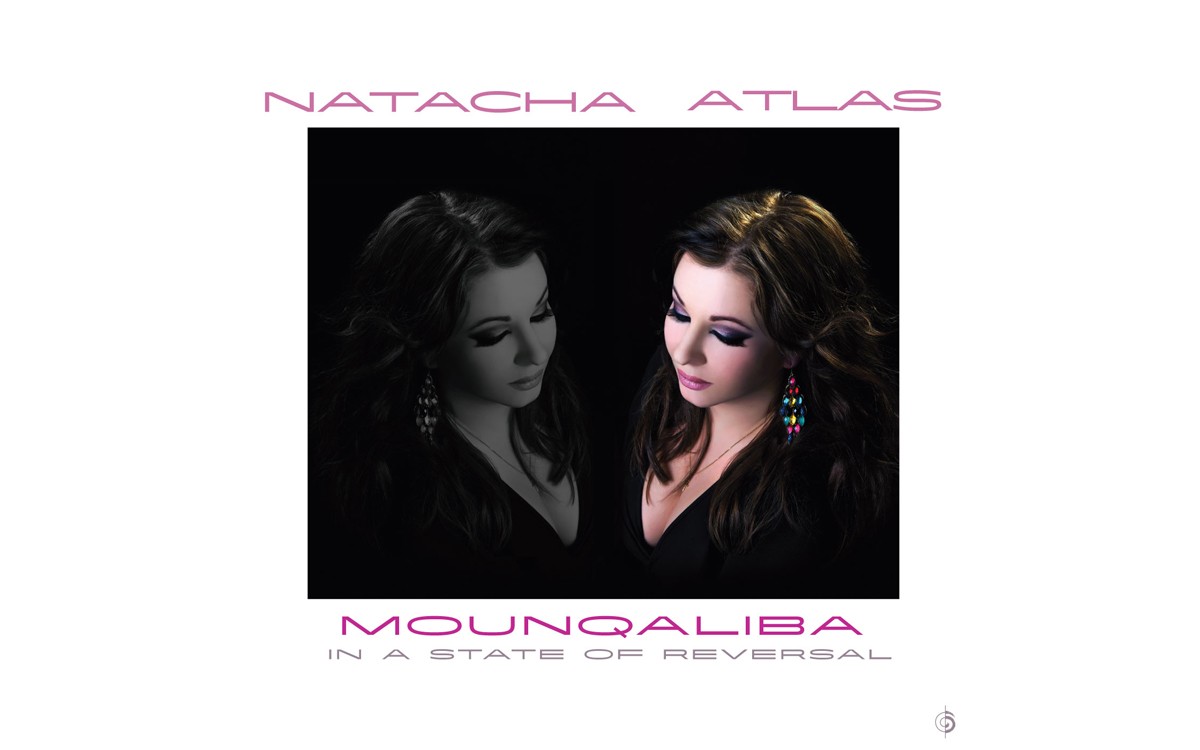
- By Natacha Atlas - Six Degrees
- Mounqaliba (In a State of Reversal)
International singer and composer Natacha Atlas has long fought being pigeonholed. Her first success came with work as lead vocalist with Transglobal Underground, where Atlas' voice gave a certain kind of "world" credibility to the fusion of heavy dance-beats and international influences. It's ironic that when she has attempted to move away from that, edging toward a more introspective musical direction exposing her mixed Middle Eastern roots, her "credibility" is questioned.
Atlas' ninth solo record, Mounqaliba (In a State of Reversal), is a lush, multi-layered and personal album, and it just may be her finest to date. In part, Mounqaliba is a statement, inserting voice clips of Jacque Fresco excerpted from the documentary, Zeitgeist: Addendum. Fresco is the founder of the Venus Project, a movement that advocates the replacement of the current monetary system with a resource-based economy.
Aside from two covers, Nick Drake's "River Man" and Francois Hardy's "La Nuit est Sur La Ville," the compositions are all penned by Atlas and violinist and arranger Samy Bishai and sung in Arabic. Coming from a mixed heritage of Moroccan, Egyptian, Palestinian and British, Atlas is an embodiment of a growing population of new Europeans. For Mounqaliba, she and Bishai blend a wide spectrum of artistic influences within the framework of past contemporary Middle Eastern music (namely legendary Lebanese composers/musicians/playwrights, The Rahbany Brothers).
The result is a subtle mix of hybrids. The cover of Drake's "River Man," whose original melody contains Middle Eastern influences, is a good example of this type of "hybrid." Atlas brings a full-bodied voice, a mixture of Middle Eastern pop and jazz torch singer, accompanied by a string arrangement that acts in melodic counterpoint with British jazz pianist Zoe Rahman's dark richness contributing to the song's tone. Atlas succeeds in keeping true to the spirit of the original while making the song her own. It's emblematic of redefining "British-ness," even in art.
Bishai, who served as co-producer (along with Atlas) mixes influences in his lively string arrangements, often co-mingling traditional and contemporary, Western and Non-Western. The arrangements still carry a contemporary feel, as if rendered by a group like Kronos Quartet.
At a time when the term "world music" becomes more blurred (and ultimately meaningless), we find the fusion of international influences is not exclusively a Western phenomenon. The rest of the world has been incorporating outside influences for years in their own popular culture. Natacha Atlas confidently allows influences to freely blend, including jazz, pop and traditional, ranging from India to France to Lebanon. Mounqaliba serves also as a graceful and satisfying artistic rebuttal to those who have imposed expectations on her and her music.
Comments